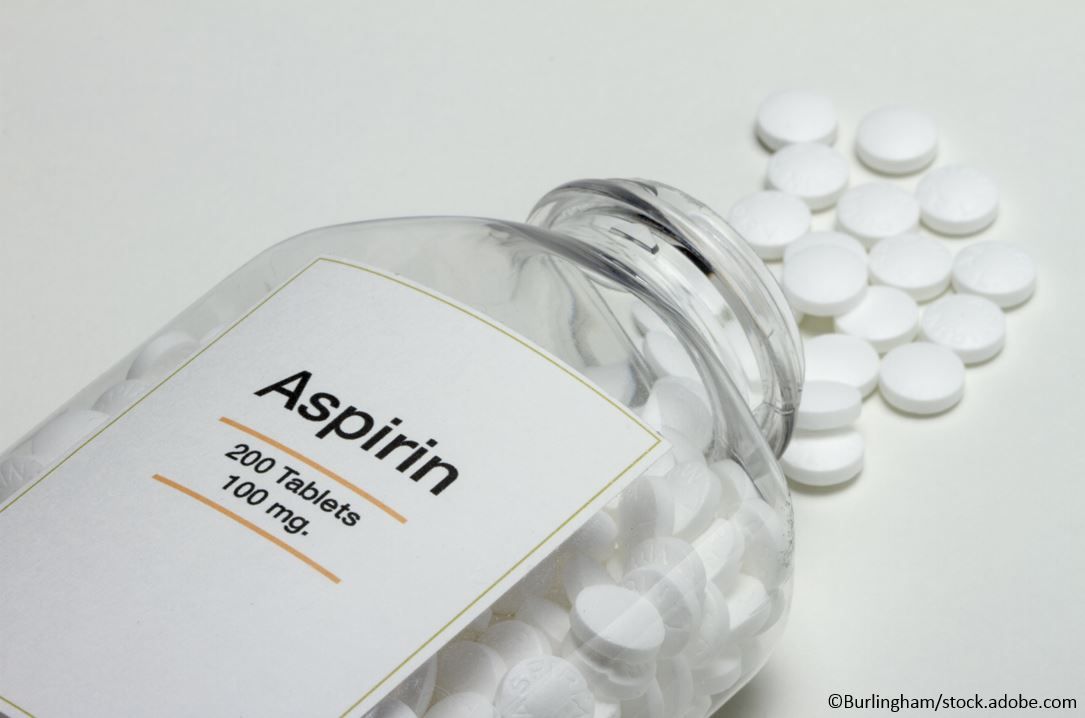- Clinical Technology
- Adult Immunization
- Hepatology
- Pediatric Immunization
- Screening
- Psychiatry
- Allergy
- Women's Health
- Cardiology
- Pediatrics
- Dermatology
- Endocrinology
- Pain Management
- Gastroenterology
- Infectious Disease
- Obesity Medicine
- Rheumatology
- Nephrology
- Neurology
- Pulmonology
A no-go for aspirin, Vegetarian victory, Opioids and dementia +2: The Five for Friday
No aspirin for healthy elders, Vegan diets vs CVD, Opioids deadly in dementia, plus BP patterns in babies, and the fear of Alzheimer's runs deep.
Our editors' summaries of the 5 most newsworthy topics reported on Patient Care®this week.

Aspirin a no-go for grandma. In healthy adults older than age 70 years the go-to antiplatelet for CVD prevention increased risk for bleeding but did not decrease the risk of a first stroke. The findings come from a new analysis of the largest RCT of daily low-dose (100 mg) aspirin to evaluate the risk/benefit ratio in older adults and bolsters the most recent recommendation from the USPSTF against routine use of the OTC drug for primary prevention of CVD. More details, here.

Opioids + dementia = deadly. After a diagnosis of dementia, a first opioid prescription was associated with significant increased risk for mortality, the highest risk occurring within the first 2 weeks of redeeming the prescription when Danish investigators observed a more than 10-fold increase in deaths. A more than 2-fold risk persisted at 90 days. Among those who received a first opioid prescription for fentanyl, 65.3% died within 180 days. More details, here.

Vegetarian victory. The dietary pattern, including lacto-ovo and lacto-vegetarian versions, was associated with modest, yet significant improvements in cardiometabolic risk factors on top of outcomes with standard pharmacologic treatment in people with or at high risk for CVD. A new meta-analysis found that, consumed for at least 6 months, a vegetarian diet led to significant reductions in LDL-C, HbA1c, and body weight in a highly vulnerable population. More details, here.

BP patterns and babies. Investigators identified 6 blood pressure patterns that, when combined with other risk factors, accurately stratified risk of hypertensive disorders of pregnancy in the first 20 weeks of gestation. The predictive ability was consistent regardless of a pregnant person's race/ethnicity. Study authors say findings suggest that there are subsets of vulnerable patients even within populations at low-to-moderate risk. More details here.

Elders fear AD. Less than half of people aged 65 to 80 years who have a family history of dementia report having undergone cognitive screening in the past year. Less than one-quarter of this population have ever been screened. How others would perceive them if they tested positive for cognitive decline was a significant concern for many and particularly for women. More details, here.
Phase 3 Data Support Oral Orforglipron for Weight Maintenance After GLP-1–Based Weight Loss
December 19th 2025Topline Phase 3 ATTAIN-MAINTAIN data show oral orforglipron met primary and key secondary endpoints for weight maintenance after prior GLP-1–based injectable therapy in adults with obesity.
